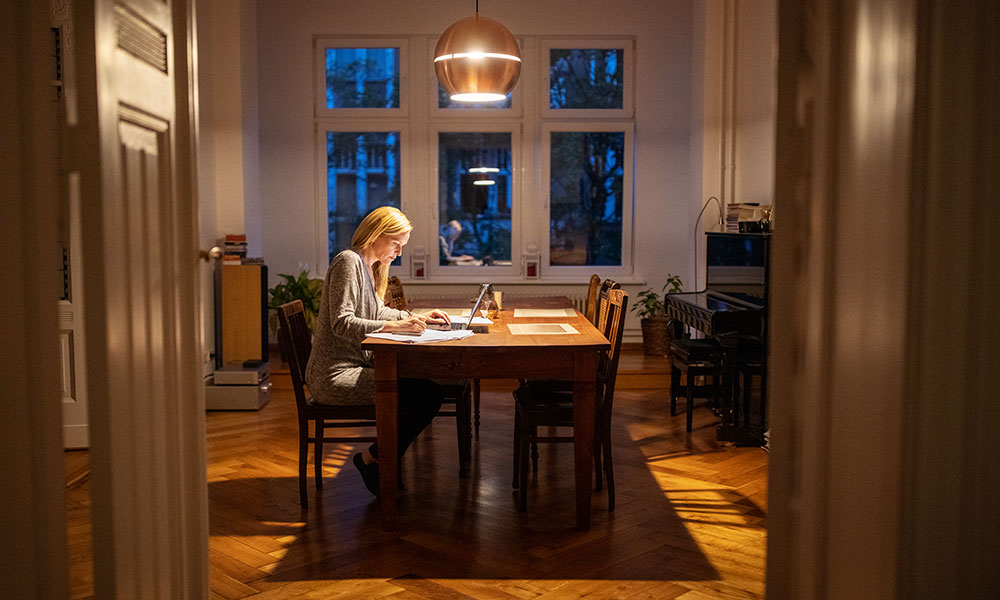
UBCO research indicates working from home is costing employees more than they might think.
When people were sent home to work during the early stages of the COVID-19 pandemic, no one could anticipate that option might permanently change the workforce for many people.
Those who could, stayed home for the bulk of the pandemic, with many still opting for remote or hybrid work options even today.
Researchers at UBC Okanagan have undertaken an extensive analysis of daily in-home activity to compare pre-pandemic and pandemic behaviour as a way to project residential energy consumption after the pandemic.
And they determined working from home is costing employees money.
“Anecdotally, we know that people were spending more time at home than ever during the pandemic,” explains Dr. Mahmudur Fatmi, Assistant Professor at the School of Engineering. “We wanted to examine what that could mean for residential energy and how this could help to plan and design communities in the future.”
Through an agent-based simulation powered by machine learning techniques, the researchers developed a modelling framework to integrate in-home and out-of-home activities in addition to the associated residential energy usage in the central Okanagan.
The simulation suggests a nearly 30 per cent increase in daily average residential energy consumption during the pandemic. The model—used to test a post-pandemic scenario based on a majority of activities returning to pre-pandemic levels—projected a 12 per cent increase in home energy consumption.
“These findings help us better understand the relationship between in-home activities and transportation demand and the associated residential energy consumption. This will also help us provide better insights on how communities should incorporate emerging transportation and land-use policies to adapt to residential energy needs,” says Dr. Fatmi, who is the principal investigator at UBC’s integrated Transportation Research Laboratory.
The report’s other author, doctoral student Mohamad Ali Khalil, says if work-from-home trends persist, it will reduce peak period congestions and emissions, but it will also result in a significant shift in energy cost burden from employer to employee.
“If consumption patterns continue to change, we all need to be conscious of what that means for our household costs and the way we live in general,” he says. “From the perspective of homeowners, they can reduce their consumption by updating and maintaining the heating and cooling systems of their homes, using efficient appliances and adjusting their thermostat setpoints.”
This study is part of a larger regional travel demand forecasting model initiative undertaken by Dr. Fatmi and his research group. The team intends to investigate transportation-related decisions such as residential location, vehicle ownership, and travel as well as in-home activities of each individual in the central Okanagan within a unified modelling framework. This model can then be used to assess the impacts on traffic congestion and the environment.
In the next phase of the research, Dr. Fatmi and his team will extend their modelling to include how demographics, residential choice and transportation have impacted emissions and energy consumption during and after the COVID-19 pandemic.
The research was funded by a Natural Sciences and Engineering Research Council Discovery Grant and published in Sustainable Cities and Society.